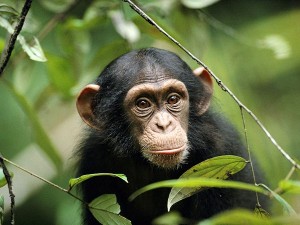
EDITOR NOTE: This is Jonny’s 100th post From his humble beginnings writing about elective amputation, Jonny has taken Technology Bloggers by storm! Jonny started as a contributor, soon after earning himself author status and he has recently been awarded editor status. Congratulations and thank you from me and the rest of the community Jonny, you deserve it. Here is to the next 100! 😉 – note by Christopher
Oh I am rather tired this morning, like many others. I need to have my daily coffee. Sometimes I imagine a world where my surroundings understand me, my needs and wishes. I had a teas-maid once, that was the closest I ever came to automated good life, but times have moved on.
Face recognition software offers the dream of a newly serviced life. And the dream is here already, well not here exactly but in South Africa.
Yes coffee producer Dowe Egberts have built a coffee machine that uses a camera and software that can read your face. When it sees a person yawn it automatically produces a free cup of coffee for them. Check out this video on Youtube. Or get a free coffee by yawning next time you pass through the O.R. Tambo International Airport.
This is of course all done for publicity, but it does open up a train of thought that leads into science fiction.
This is not my first post about face recognition software. I wrote one earlier this year about Verizon’s project to fit it to TV top cable boxes, and the year before about mobile recognition apps, and since then there have been a few developments that I would like readers to note.
Researchers have been working on identifying individual animals using the same software. Cameras are often used to count wildlife in studies, but the problem often arises of determining which animals may have been counted twice. This problem could be overcome if the software could recognize the individual beasts, and scientists at Leipzig zoo have been working on such a project.
They have 24 chimpanzees to work with, and have designed a system that recognizes individual animals with up to 83% accuracy. The difficulty is getting good photos in the wild though, and in dim light the accuracy quickly drops, so the researchers have been designing new parameters to improve broader recognition.
Check out the article here to learn more.
On a slightly less positive note Facebook are again at the helm of recognition privacy. Once again, proposed changes to its privacy policy mean that already uploaded information is to be used differently.
Facebook has indicated that it will now reserve the right to add user profile pictures to its facial recognition database. Currently, only photos that a Facebook friend uploads and tags with a user’s name go into the facial recognition system. By opting out of the tag suggesting feature and declining to allow friends to tag him or her, a user can avoid being included in the social network’s facial recognition database.
No More might this be the case!
The change would mean that every user, of a population of a billion, whose face is visible in his or her profile photo would be included in the database. To sidestep the new feature, users will have to avoid showing their faces in their profile photos and delete any previous profile photos in which their faces are visible.
Facebook have however had problems implementing their recognition policies in Europe, and in fact the system was turned off in August of last year, but the new regulations seem to be another attempt at opening the door. See this article for a review of the arguments.
Regardless of whether you as an individual take these precaution, millions will not, and the database will grow massively overnight. And that will be worth a lot of money to somebody somewhere down the line, and have implications for all of us.
